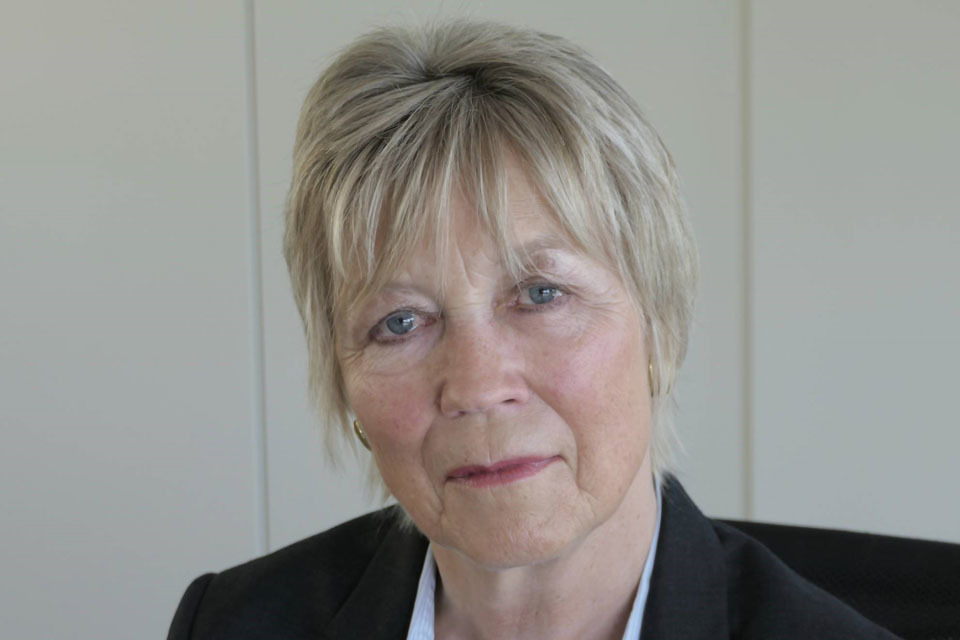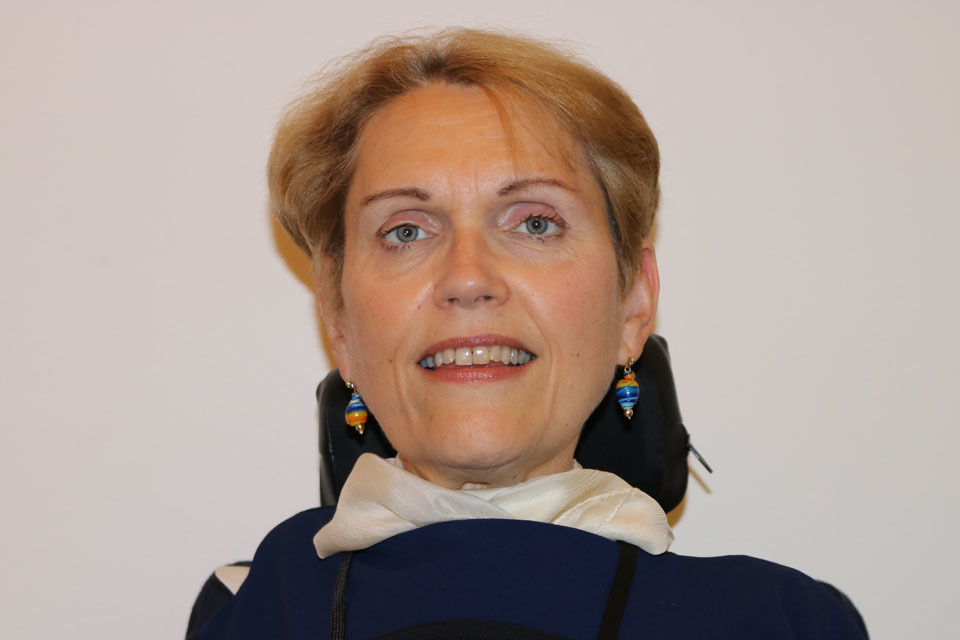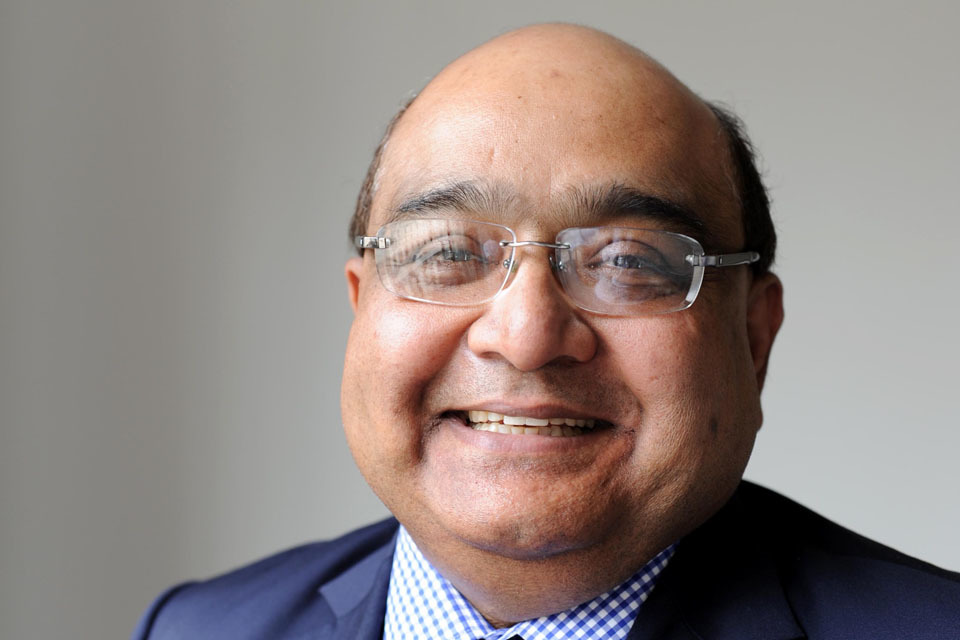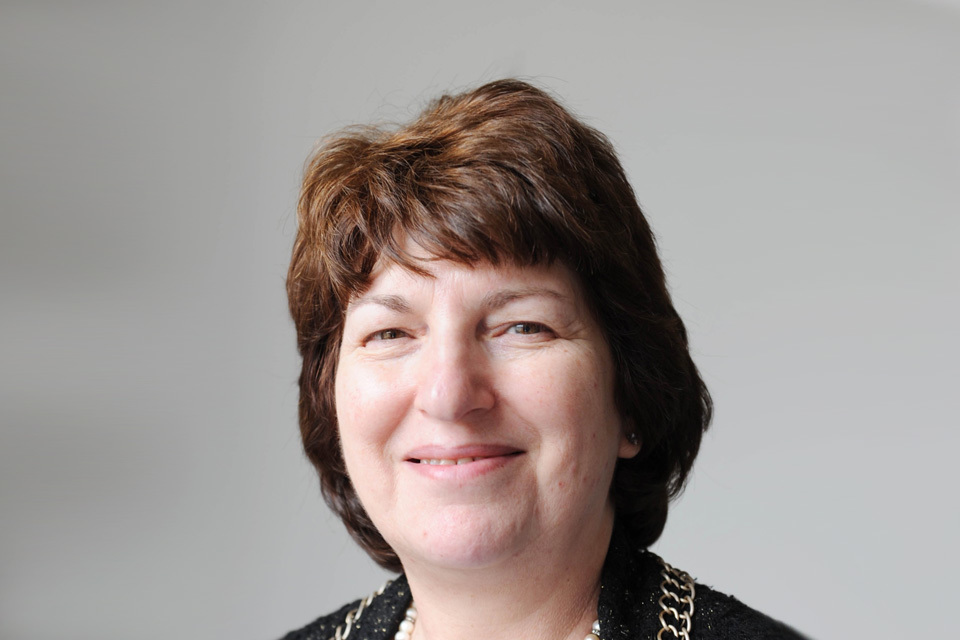Your Charter Annual Report: April 2017 to March 2018
Published 12 July 2018
Your Charter
We want to give you a professional service; one that is fair, accurate and based on mutual trust and respect.
We also want to make it as easy as we can for you to get things right.
Your Charter explains what you can expect from us and what we expect from you.
| Your rights - what you can expect from us: | Your obligations - what we expect from you: |
|---|---|
| Respect you and treat you as honest | Be honest and respect our staff |
| Provide a helpful, efficient and effective service | Work with us to get things right |
| Be professional and act with integrity | Find out what you need to do and keep us informed |
| Protect your information and respect your privacy | Keep accurate records and protect your information |
| Accept that someone else can represent you | Know what your representative does on your behalf |
| Deal with complaints quickly and fairly | Respond in good time |
| Tackle those who bend or break the rules | Take reasonable care to avoid mistakes |
Charter Committee Chair’s Foreword, Joanna Baldwin

Image shows Joanna Baldwin, HMRC Board Non-Executive Director and Chair of the Charter Committee, a sub-committee of the HMRC Board.
The Charter Committee’s role is to monitor and assess HMRC’s performance, both in terms of how it meets its customers’ expectations and rights and how it helps customers to meet their obligations, as set out in Your Charter.
The committee performs its role by acting as the voice of the customer. Members provide constructive challenge to HMRC on the way it works and on the behaviours it demonstrates in its interactions with customers – evaluated against the Charter.
The present committee, now in its third year of operation, decided at the start of the year to take a different approach to its work by focusing on fewer topics in greater depth in order to gain greater insight into those topics. By doing so, we have been able to provide HMRC with advice that will have more impact and action points to take forward.
This is a report of the committee’s work, undertaken over the course of the year April 2017 to 2018, and the actions taken by the committee or HMRC as a result. The committee assessed HMRC’s work and prioritised areas requiring a review of HMRC’s performance against its obligations in Your Charter.
The work areas we reviewed as a result were:
- HMRC’s handling of micro and small businesses
- HMRC’s approach for assisting customers who may need some help using its digital services
- the Needs Enhanced Support (NES) service – which provides specific one-to-one advice and help to customers who need it
- how HMRC measures customer experience and satisfaction
The report also includes HMRC’s 2017 Customer Survey results at Appendix 2, where they relate to the expectations of the customer and HMRC, again as set out in the Charter. Improvements seen in the previous year for agents and individuals have been maintained in the current year, but agent satisfaction levels remain lower than other customer groups.
In 2018 to 2019, there is an opportunity to re-frame and re-launch the committee with a broader remit, to consider the end-to-end customer experience, in order to improve its contribution further in the coming years. Our new Customer Experience Committee will recruit new members, and widen its scope and knowledge into the broader area of customer experience as a whole.
I would like to thank my fellow committee members for their hard work and enthusiasm in adapting to the new style of working. I would also like to send the committee’s sincere condolences to the family of committee member Chris Jones, who died suddenly in November 2017. He was a highly valued member and will be a huge loss.
Lastly, I would like to welcome newcomer Dr Anne Kirk, and express my appreciation to 2 members who left the committee at the end of March – Sue Terpilowski and Uday Dholakia. Their contributions have been most helpful to the committee in delivering its work.
Why Your Charter matters
Your Charter is important to HMRC and its customers. It sets out what customers can expect from HMRC, as well as the obligations HMRC is expected to meet.
For HMRC people, Your Charter provides a clear framework on how they are expected to deliver services for customers.
This report is the Charter Committee’s own assessment of HMRC’s progress against that framework.
HMRC sets out the rights and obligations under the Charter in the HMRC annual report and accounts: 2017 to 2018 and reports on how it has performed for customers, what it has achieved across the department and for its customers.
1. The Charter Committee
Our role is to:
- review how HMRC performs against the standards of behaviours and values in Your Charter, holding HMRC to account
- provide challenge and assurance to the HMRC Board on the implementation of the Charter and its principles
- support HMRC in improving services
During the period of this report, the committee included Non-Executive Board members Dr Alice Maynard and John Whiting, along with 5 external members. Collectively, they brought to their roles a significant understanding of HMRC’s broad customer base, and the needs of each group.
At Appendix 1 of this report, you will find biographies of the Charter Committee members.
The committee meets 4 times a year, reporting to the Board through its Chair at HMRC Board meetings and through this annual report.
The Charter Committee meets regularly with HMRC teams responsible for customer services, as well as meeting customers directly to:
- see how HMRC is satisfying its commitment to its customers, according to Your Charter
- help committee members understand the range of work carried out to fulfil HMRC’s mission and objectives
- hold HMRC to account on how its services meet Your Charter commitments
The Charter Committee’s views and recommendations are also informed by its members’ broad experience and contacts, as well as through other routes, such as customer feedback, research and ‘customer immersion’ sessions – where members of the committee meet customers face-to-face.
HMRC acts on recommendations from the committee, on how HMRC can be more customer-oriented, throughout the year.
2. The work of the Charter Committee
In addition to focusing on fewer work strands in greater depth, the committee also spent more time on preparatory work and discussion.
Individual Charter Committee members sponsored themes of personal interest or expertise, and they took ownership of topics to drive the committee’s actions relating to that work.
The committee meetings have been longer, as they included the ‘immersion sessions’ where members could discuss issues directly with customers. This approach gave the committee a clearer insight into customers’ views and opinions, as we heard issues or concerns first hand and not solely from HMRC’s perspective.
The committee maintains a dialogue between meetings to maximise its impact. Members also keep a close eye on HMRC’s Board agenda, so that they can see that the committee’s contributions go towards solving HMRC’s most pressing concerns and add significant value – while retaining its focus as a critical friend.
The committee visited a number of businesses who set a prime example of providing a high quality customer service, to experience first hand how these businesses maintain and measure their customer performance.
The committee also spent time with HMRC’s NES advisers to witness how they helped customers resolve problems and handle their affairs. Further details are set out in section 2.3 of this report.
John Whiting, Charter Committee member and Non-Executive Director of HMRC, said:
…the impact of the customer sessions, particularly around NES – is something I have been following and supporting since its establishment.
Seeing NES in action and then talking to a wider group of HMRC people involved with delivering NES was very rewarding – very much HMRC at its best in the way that there is such a focus on helping the customer and trying to get them to a better position for the future.
2.1 More direct engagement with customers
HMRC provides regular face-to-face customer ‘immersion sessions’, which the Charter Committee took part in twice this year. These gave committee members the opportunity to improve their understanding of HMRC’s customers by discussing issues with them directly.
Specifically, the committee met micro and small businesses and business groups and customers who had utilised HMRC’s NES service. More detail about these ‘immersion sessions’ and their outcomes are available in section 2.3 of this report.
This has been an invaluable exercise. The thoughts and ideas that came out of these sessions provided the committee with a greater understanding of how and why some NES customers have difficulty being ‘compliant’ because they find the tax system ‘complex’.
Committee member Natalie Doig said:
“One of the most striking experiences was sitting in on a NES service interview at a job centre. I was struck by how committed the HMRC staff member was in trying to deal with the case and resolve it as best they could and get things right for the customer.
“However, it was also difficult for the individual to resolve the issues in one interview because it required the input of several different HMRC services, and in this particular case it required the person to be upskilled in using a digital service.
“We therefore made a recommendation to HMRC to ensure that they join up their services ahead of the interview, so that more cases can be resolved in a single interview.
“I was also pleasantly surprised at the wide range of people using the NES service for a range of reasons and it was encouraging to see such a cross-section being given the help and support they needed.”

Image shows Natalie Doig, Charter Committee member.
HMRC has employed a new facility known as the Customer Lab to conduct in-house research to understand what parts of its processes customers find easy to use, or otherwise.
Customers also test ideas and early prototypes, working in partnership with teams across HMRC to build on their knowledge and expertise. The department will use the results of this work to design services from the outset that are better suited to multiple customer needs.
Work will continue to look into how HMRC can best enhance customer experience with its new Customer Lab in Shipley and how the lab in turn can support the Charter.
2.2 Performance measurement
The committee has explored HMRC’s ambition to move towards a more customer experience-driven approach to its operations – looking at how performance measures can help to develop that organisational culture and behaviours.
The committee has drawn on members’ own experiences and consulted with major companies with a strong reputation for customer service. Members spoke to representatives of these organisations with responsibility for measuring customer satisfaction and experience.
The committee used these visits and the information they gathered to make recommendations to HMRC on how it can improve its own performance measurement framework.
John Whiting, Charter Committee member and Non-Executive Director of HMRC, said:
“Probably my strongest memory or impact from the year’s Charter Committee work has been the visits to organisations to explore and discuss their approach to customers, their evaluation of their efforts and how they link so well to the organisations’ aims and goals.
“I went to visit the head offices of 2 companies, one was a high street building society and the other a multi-national corporation, both with excellent records in customer service.
“In both cases I came away very impressed by the clear directions that are set, the analysis that has been done and the impact it all makes on how they do business – and how it contributes to their success. There was a real pride in it all. One small side point was that it was nice to see their willingness to talk to HMRC, their interest in what we are doing and their openness to others’ ideas.”

Image shows John Whiting, Charter Committee member and Non-Executive Director of HMRC.
Following discussions with the Charter Committee, HMRC continues to explore the most effective questions to capture real-time insight from customers. The department is also aiming to develop performance measures that drive the desired customer behaviours set out in the Charter.
In addition to enhancing its internal technical systems for performance measurement, HMRC has been looking at other ways to improve it. . For example, HMRC has been testing the viability of a ‘single platform’ piece of technology to capture and bring together customer insight from multiple channels in real-time and in one place. This will enable the department to have a clearer view of the issues affecting customers and be able to respond to them more quickly and prevent them from escalating.
The committee also observed that HMRC is reviewing the tone and clarity of the wording of questions in its surveys following a customer transaction. Following discussions with HMRC, the committee was pleased to see the approach being taken and strongly encouraged the department to continue with this.
HMRC will now be adopting a measure to ask customers how easy they found it making a transaction with the department. The committee hopes this will be more suited to the department’s aims and objectives and provide insight that will show more easily what action HMRC should take.
2.3 Needs Enhanced Support Service
The committee visited centres where HMRC provides Needs Enhanced Support (NES) services, to observe NES advisers talking to customers. The committee heard how these specially-trained advisers give carefully tailored assistance to those customers who require an additional level of help to be able to meet HMRC’s requirements.
Committee members heard from both HMRC’s NES advisers and customers in ‘immersion sessions’ on the department’s approach with people who find it difficult to do what is required of them.
The department set out examples of how it is supporting customers, including answering their queries and educating them in the use of HMRC’s digital channels.
After the sessions, the committee carried out a detailed review of the service provided and are making recommendations to HMRC.
Important factors the committee considered included:
- how customers were referred to the NES service
- how quickly customers were seen by a NES adviser
- what the customers thought of the service
- the quality of the venues used for NES meetings with customers
- how HMRC educates customers to help them resolve future queries themselves, digitally or by traditional methods
The committee was encouraged to see that NES advisers are good at signposting people to use other communication channels where they are able. Committee members are particularly keen to ensure that the help provided to customers in accessing HMRC’s digital services is sufficient.
In response to the Charter Committee recommendations, the NES team are exploring:
- opportunities to improve guidance and better signpost information to ensure queries are handled appropriately and, where possible, are resolved at their initial contact – taking what the department calls a Once and Done approach
-
amending the Customer Satisfaction Survey to obtain specific feedback on the venues used for face-to-face appointments, with a view to taking appropriate action where necessary
- proposals to raise awareness of the NES service to a wider proportion of customers and stakeholders
Anne Kirk, Charter Committee member, said:
“The moment that stands out from the session I attended was the customer immersion part – what came across was the ownership taken by the HMRC staff in the extended support NES unit, and their commitment to getting the customer to the outcome they were trying to achieve.”

Image shows Dr Anne Kirk, Charter Committee member.
Another committee member, Alice Maynard, said:
“I’m also hopeful that the committee will have had an impact on the quality of some of the venues for the NES service which we visited and found were not suitable for the purpose, and we fed this back to HMRC accordingly.
“I’m optimistic that HMRC digital services are being developed well and are taking customers in the right direction – given the record numbers of people submitting their Self Assessment online this year and the positive customer feedback we saw on the webchat facility (now being rolled out on more services).

Image shows Alice Maynard, Charter Committee member.
2.4 Micro and small businesses
The Charter Committee met a number of small and micro business customers to discuss their opinion of how HMRC was delivering its commitments in the Charter. They provided an indication of the difficulties they face when trying to satisfy HMRC’s requirements.
They also provided the committee with clear, first-hand experiences of their interactions with HMRC in relation to Your Charter principles. The committee agreed that there were actions HMRC could take to better help customers pay the right tax – for example, improving the signposting to digital services.
In 2018 to 2019 there will be a further review of the findings from these discussions with HMRC.
Committee member Uday Dholakia OBE said:
“The Charter Committee put customers of HMRC at the core of its activities. By meeting with a number of customers who ran small businesses and listened to their concerns, it was satisfying to be able to raise these issues with the Department and for the committee to help both challenge and address them on areas such as the continuing need to improve guidance, and make it easier than it presently is for customers to gain access to HMRC services - whether over the telephone or online.”

Image shows Uday Dholakia, Charter Committee member.
2.5 Supporting customers who require help to use HMRC’s digital services
The committee commissioned HMRC to present them with a picture of the customer base unable or unwilling to use HMRC’s digital services, its strategic approach to this issue and its customer support model – designed to help customers’ access digital services.
The committee concluded that this work:
- identified some gaps in the department’s data and knowledge about the various customer segments - CHMRC’s digital directorate are in the process of commissioning research to fill gaps
- showed the need for a more joined-up approach that addresses the needs of a variety of customers requiring additional help to access online services
HMRC is seeking to help customers, and the digital services it provides are key to meeting that objective.
Work will continue to explore HMRC’s Assisted Digital services, pushing the department to plug gaps in knowledge and data. We want to make sure HMRC fully understands the challenges going forward and knows how it will provide the resources to meet the demand for Assisted Digital; and that HMRC can correctly target its additional support to those who genuinely require it.
Committee member Sue Terpilowski said:
“I was impressed by HMRC’s development of their digital services. They were modern and based on the mindset of a commercially run enterprise, rather than the perception of what a public sector digital service might look like. The enthusiasm of the HMRC staff responsible for developing and delivering this and their commitment to getting it right was plain to see. It was also clear how much work had gone into scoping out the customer journey to ensure the service was based on user need.”

Image shoes Sue Terpilowski, Charter Committee member.
Key features in the ongoing discussion include the level of demand from Assisted Digital customers and the need for HMRC to be proactive in planning assumptions and the various factors that could affect demand. For example, how the customer segments may change in size and make-up, and the development and uptake of new digital technology.
The committee identified 3 key issues:
- the size of the customer base
- the respective strategies to handle them
- the appropriate support available to the different customer segments
The committee will continue with this work to ensure further progress can be made.
Committee member David Oxley said:
“My most striking experience was seeing how committed the HMRC staff are to serving the customer needs and ensuring appropriate resolution, which is even more impressive when you consider they are working in a time of considerable change themselves with large moves of staff to regional centres.
“It has been pleasing to see the impact the Charter Committee has made on some of HMRC’s transformation work, notably Making Tax Digital for Business, and influencing the decision to slow down the roll-out to allow this to land better for customers, giving them more time to prepare.
“The committee got feedback from small and micro businesses who were digitally excluded or digitally less able and it was clear that they needed more time to be ready for Making Tax Digital for Business.”

Image shows David Oxley, Charter Committee member.
3. Charter Committee priorities for 2018 to 2019
We are committed to evolving the way we operate, and to carry out the reforms, introduced in the tax year 2017 to 2018. The new Customer Experience Committee will continue to help shape HMRC’s approach to Assisted Digital by further detailed study, and making recommendations accordingly. To expand our knowledge and understanding of the ‘gig’ economy, we are looking to recruit one or more new members with this experience of work where job contracts are temporary, short-term or based on freelance work.
We will follow up on the questions submitted to HMRC following the detailed study of HMRC’s NES work and the ‘immersion sessions’ with NES customers and advisers, making recommendations for change as appropriate.
Appendix 1 - Charter Committee members
The committee is deliberately diverse in its make-up, so that it may represent a wide cross-section of society, and add real value to HMRC’s work. There are self-employed individuals on the committee, as well as employers. Some members are also tax professionals and some are members of representative bodies.
Below is a list of members of the committee for the period of this report, along with positions they hold and their experience.
| Name | Current positions and experience |
|---|---|
| Joanna Baldwin | Joanna has spent her career advocating the customer’s point of view. A marketing strategist by profession, Joanna’s work spans a broad range of business sectors. She holds, or has held, positions in private and not-for-profit organisations, in addition to her role as a Non-Executive Director of HMRC and the Chair of its Charter Committee. Her particular interest is harnessing the power of technology to improve customer experience. |
| Natalie Doig | Natalie has more than 18 years’ experience in the field of disability rights, equality and diversity – work she continues in her role as Director of Hareonna Diversity Ltd. Over the years, she has worked with organisations to improve the representation for disabled people, and particularly those with a visual impairment. On the Charter Committee, she represents groups who need extra support, including small businesses. |
| David Oxley | David has built his career in creating digital and security systems. He is currently Director of Engineering Quality at McAfee, where he works to improve the engineering processes and practices, ensuring consistent delivery of high quality security products into the corporate and consumer markets. He is also a trustee and treasurer for the Buckinghamshire Disability Service (BuDS). |
| Dr Anne Kirk | A passionate customer advocate, with more than 20 years’ experience in roles in both industry and consulting, across retail and financial services. Currently Customer Director at Swinton Group with responsibility for brand, marketing and PR, customer experience, digital, insurer relationship management, product development, pricing and analytics. |
| Susan Terpilowski | Sue started her own business, Image Line Communications, more than 30 years ago in the logistics and supply chain industry. She is currently Chair of the Federation of Small Businesses London Policy Unit, a board member of the London Business Network and Chair of the Chartered Institute of Logistics (CILT) ports, maritime and waterways sector, giving her a wealth of insight into the needs of small and micro businesses. Sue is also part of CILT’s special task group looking at EU exit and especially Trusted Trader and ‘frictionless’ borders. |
| Uday Dholakia (OBE) | Uday is senior partner at Global Consulting UK Ltd and Chair of the National Asian Business Association (NABA). He is a Commonwealth First Export Champion and chair of the Trade Facilitation Expert Panel at the Department for Business, Energy and Industrial Strategy (BEIS). He is an experienced broadcaster and commentator on small and medium enterprises, and regulation. He is also a brand ambassador for Birmingham Airport. |
| Alice Maynard (CBE) | Alice has dedicated her career to improving organisations that are the building blocks of society – transport, housing and social care organisations. She currently holds positions in a number of public sector and not-for-profit organisations, in addition to her role as a Non-Executive Director of HMRC. Alice combines her understanding of how business works and of social issues in order to help the organisations she works with thrive, as well as working towards a fairer society. |
| John Whiting (CBE) | John was the former Tax Director of the Office of Tax Simplification (OTS), a part-time role he held since the OTS was established. Until 2013, he was the Tax Policy Director of the Chartered Institute of Taxation; previously, he was a tax partner at PricewaterhouseCoopers. He is currently a Non-Executive director of HMRC and a Board member of Revenue Scotland. |
Appendix 2 - Measuring HMRC’s performance against Charter Commitments: 2017 Customer Survey Questions
HMRC’s performance against the various elements of Your Charter continues to be measured through an annual customer survey of individuals, small businesses and tax agents, designed to track changes in customer experience and gain feedback on a wide range of interactions.
The questions in the survey do not directly ask customers about their experience of Your Charter, but draw together groups of related questions to provide insight about the Charter elements. For example, in presenting views on one of the Charter rights ‘provide a helpful, efficient and effective service’, we have used customer views about how easy it is to find information, how good that information is, the perception of whether we get transactions right, and the acceptability of the time taken.
The results for 2017 are set out in the tables below. The full survey results have been published separately.
The 2017 results show little change from 2016. Improvements seen in the previous year for agents and individuals have been maintained.
Agents, who have more regular dealings with the department, continue to be the least positive. However, the results for agents have improved since 2016 in the following areas:
- ‘HMRC is efficient and does not waste money’
- ‘HMRC ensures all customers pay and, or receive the correct amounts’
Small businesses continue to rate most areas more positively than individuals and agents. However, the result for ‘HMRC apply penalties and sanctions equally’ has worsened for small businesses since 2016.
The purpose of penalties is to encourage taxpayers to comply with their obligations and act as a sanction for those who don’t. HMRC applies penalties evenhandedly and in a way that does not discriminate between different taxpayers.
The government has consulted on proposals for new harmonised late submission and late payment penalties across all taxes, which will help to ensure that penalties are applied consistently. The changes will lead to a common late submission penalties regime across all taxes with regular filing obligations based on a points-based model.
Individuals
| Charter commitment | Survey statement | Percentage of individuals who agree | Percentage point change between 2016 and 2017 |
|---|---|---|---|
| Respect you and treat you as honest: | |||
| HMRC are approachable | 65% | -1 ppt | |
| HMRC treat customers fairly | 80% | +2 ppt | |
| HMRC treat customers as honest | 81% | - | |
| Provide a helpful, efficient and effective service: | |||
| It was easy to find information | 59% | +2 ppt | |
| HMRC gets transactions right | 69% | +2 ppt | |
| Quality of information is good | 68% | +1 ppt | |
| Time taken is acceptable | 64% | +2 ppt | |
| Be professional and act with integrity: | |||
| HMRC systems prevented mistakes | 53% | +1 ppt | |
| HMRC are efficient and do not waste money | 35% | +1 ppt | |
| HMRC ensures all customers pay/receive the correct amounts | 42% | +2 ppt | |
| Protect your information and respect your privacy: | |||
| HMRC ensures data and personal information is treated confidentially | 70% | -1 ppt | |
| Accept that someone else can represent you: | |||
| HMRC made it easy for someone to act on your behalf | 74% | -2 ppt | |
| Deal with complaints quickly and fairly: | |||
| HMRC resolved any queries or issues | 67% | - | |
| Tackle those who bend or break the rules: | |||
| HMRC apply penalties and sanctions equally | 34% | -1 ppt |
Note: The percentage point changes shown here are not statistically significant.
Agents
| Charter commitment | Survey statement | Percentage of agents who agree | Percentage point change between 2016 and 2017 |
|---|---|---|---|
| Respect you and treat you as honest: | |||
| HMRC were professional | 67% | - | |
| HMRC treat customers fairly | 62% | -3 ppt | |
| HMRC treat customers as honest | 64% | -2 ppt | |
| Provide a helpful, efficient and effective service: | |||
| It was easy to find information | 43% | +2 ppt | |
| HMRC gets transactions right | 51% | - | |
| Quality of information is good | 56% | +3 ppt | |
| Time taken is acceptable | 33% | - | |
| Be professional and act with integrity: | |||
| HMRC systems prevented mistakes | 42% | +1 ppt | |
| HMRC are efficient and do not waste money | 18% | +2 ppt * | |
| HMRC ensures all customers pay/receive the correct amounts | 42% | +3 ppt * | |
| Protect your information and respect your privacy: | |||
| HMRC ensures data and personal information is treated confidentially | 80% | +2 ppt | |
| Deal with complaints quickly and fairly: | |||
| HMRC resolved any queries or issues | 45% | - | |
| Tackle those who bend or break the rules: | |||
| HMRC apply penalties and sanctions equally | 36% | +2 ppt |
Note: An asterisk * indicates a statistically significant percentage point change. A change of plus or minus 2% may be statistically significant for one dimension, but may not be significant for another.
Small businesses
| Charter commitment | Survey statement | Percentage of small businesses who agree | Percentage point change between 2016 and 2017 |
|---|---|---|---|
| Respect you and treat you as honest: | |||
| HMRC were professional | 83% | +2 ppt | |
| HMRC treat customers fairly | 78% | - | |
| HMRC treat customers as honest | 83% | +1 ppt | |
| Provide a helpful, efficient and effective service: | |||
| It was easy to find information | 59% | +1 ppt | |
| HMRC gets transactions right | 74% | - | |
| Quality of information is good | 68% | +1 ppt | |
| Time taken is acceptable | 67% | +2 ppt | |
| Be professional and act with integrity: | |||
| HMRC systems prevented mistakes | 61% | +3 ppt | |
| HMRC are efficient and do not waste money | 31% | -2 ppt | |
| HMRC ensures all customers pay/receive the correct amounts | 50% | +2 ppt | |
| Protect your information and respect your privacy: | |||
| HMRC ensures data and personal information is treated confidentially | 71% | -1 ppt | |
| Accept that someone else can represent you: | |||
| HMRC made it easy for someone to act on your behalf | 77% | -1 ppt | |
| Deal with complaints quickly and fairly: | |||
| HMRC resolved any queries or issues | 67% | - | |
| Tackle those who bend or break the rules: | |||
| HMRC apply penalties and sanctions equally | 34% | -3 ppt * |
Note: An asterisk * indicates a statistically significant percentage point change.
